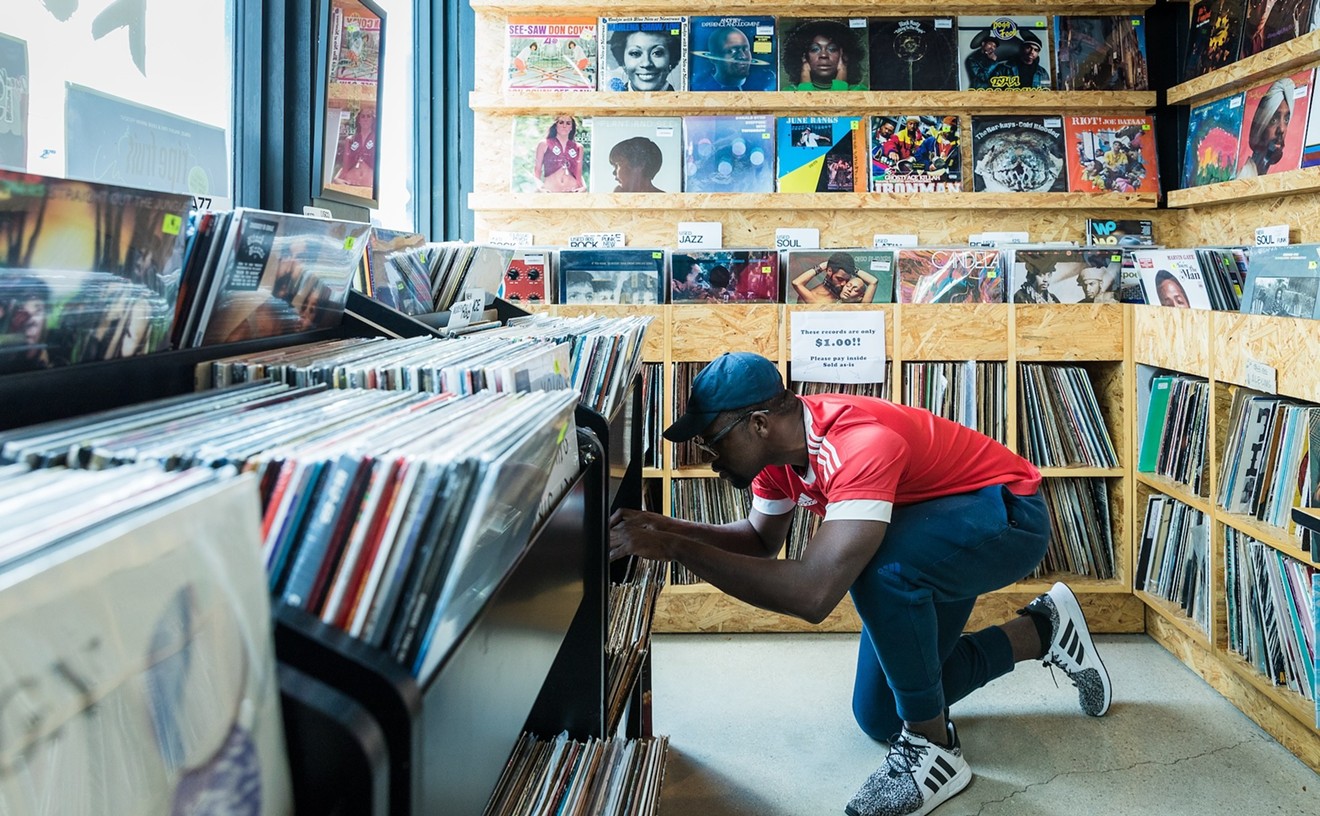Anyone who listens to hip-hop, even casually, already knows Gil Scott-Heron's work. To name just one instance, a couple of years ago, Common sampled his 1977 anthem "We Almost Lost Detroit" on the single "The People." Kanye West remixed "Home Is Where the Hatred Is" to create his 2005 hit "My Way Home." And at least half a dozen MCs have sampled his infamous 1970 proto-rap, "The Revolution Will Not Be Televised."
But Scott-Heron himself has remained at the margins of commercial music, revered by critics and fellow musicians but largely unknown to the masses. That seems to finally be changing. This past February, the 60-year-old singer released his first album in more than a dozen years. Even before its official release, I'm New Here was hailed a masterpiece by critics; Jules Rogers of London's Guardian newspaper touted it as one of the decade's best.
The disc is reminiscent of Johnny Cash's late-career American records, a reinvention of the artist's sound that still retains his musical essence. The production by Richard Russell (the White Stripes, Vampire Weekend, Thom Yorke) is austere and haunting, consisting mostly of bone-crushing drum loops and somber strings.
Scott-Heron's voice — a deep growl — has never sounded more commanding, whether he's recounting his childhood ("On Coming From a Broken Home"), surveying the bleak prospects of the urban underclass ("Your Soul and Mine"), or revealing his personal demons (a chilling cover of Robert Johnson's "Me and the Devil").
It's not hard to find recent evidence of those demons in Scott-Heron's biography. Twice in the past decade he's done time in Rikers Island, once for cocaine possession, once for a parole violation. In fact, the very conception of I'm New Here began behind bars. "Richard Russell came to see me in jail," Scott-Heron explains by phone from his Harlem apartment. "I didn't know him, but... he told me what he had in mind, and I said, 'Congratulations. I'm glad to meet somebody who has something in mind.'"
At this, Scott-Heron lets out a burst of muddy laughter. For a man who was imprisoned for possessing a small amount of cocaine, he sounds surprisingly unbitter. "We all do things that we shouldn't, that society disapproves of," he observes matter-of-factly. "Hell, that's a fine American tradition at this point."
He credits Russell's persistence as key to getting the new record made. Not a lot of hot young producers would take a chance on a relatively obscure musical icon, let alone one behind bars. But Russell is also the owner of his own label, XL Recordings, and enjoys a well-earned reputation as a visionary.
Scott-Heron says that is why he trusted Russell in creating the album's dirge-like sound, one that's almost the antithesis of the raucous funk records he produced in the '70s, with their joyous flourishes of timbale and flute. "We had a bunch of songs that were a little bit brighter," Scott-Heron says. "But Richard Russell chose not to put them on there. I'll put them on the next record I'm going to do, which will probably have Stevie [Wonder] and Mos Def. But this is Richard's record, so I gave him that. He put in so many hours. And the record does sound like me. The vocals and voicings are me. None of them have been misplaced."
Scott-Heron is delighted that the record is generating buzz, but he's quick to note he's been keeping busy. Since his release from prison in 2007, he's put out half a dozen reissues, played all over the world, and put the finishing touches on a book called The Last Holiday, about Stevie Wonder's efforts to get a holiday named for Martin Luther King Jr. The book is slated for publication early next year.
Scott-Heron is also eager to record that new album, one he hopes will include covers of his favorite songs, including Bob Dylan's "Hurricane" and tunes by Terry Callier and Crosby, Stills, Nash & Young. His dream producer for that project — any project, actually — would be Quincy Jones.
"If I could work with Quincy Jones, I'd die happy. I have a ton of his records. I love the stuff he did with Michael Jackson. Hell, I even like the theme song to Barney Miller and the score to The Heat of the Night," he says. "So if you see him, tell him I would crawl all the way to wherever he is to record with him, and he can choose the songs. Otherwise, fuck everybody else; I'll do it myself." He lets out another rumbling laugh.
"But I learned a long time ago that it's best to make one mistake at a time, so right now I'm focused on I'm New Here," he continues. "I've been heard of a lot more than I've been heard, so I'm going to give people another chance to see what I'm doing."










